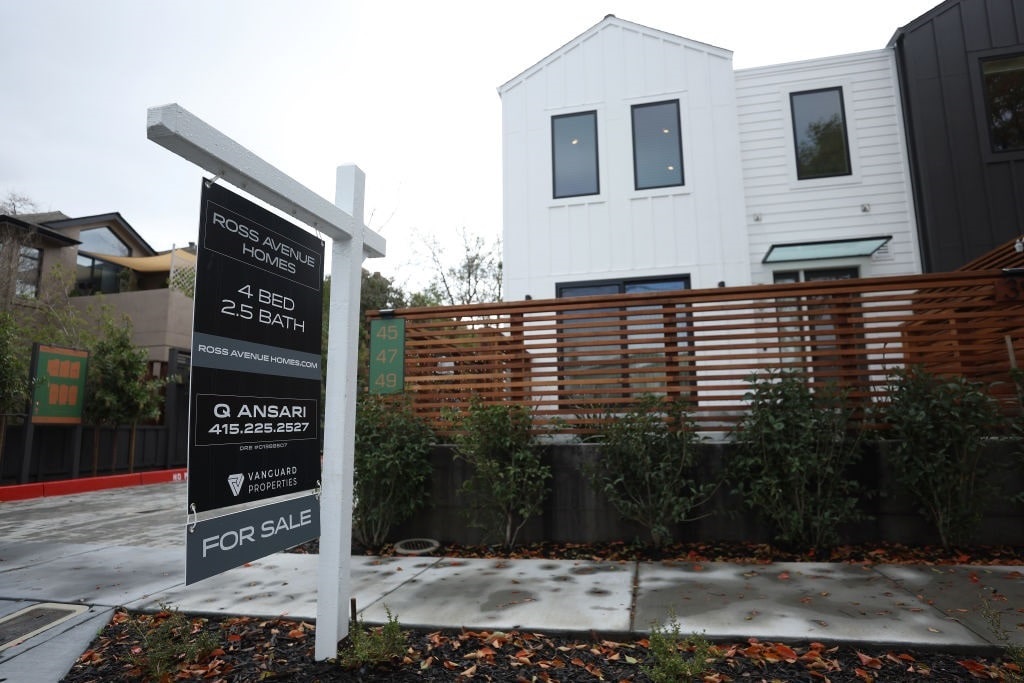Sorry, wealthy borrowers, interest rates for your jumbo mortgages will be on par with everybody else. The banking industry has been through turmoil this year, from failures to skyrocketing interest rates. Despite assurances that everything is as smooth and slick as Rico Suave, mixed messaging from Washington and activity in the financial sector provide a somewhat different portrait of what is occurring on Wall Street. Forty-year-high inflation has not only resulted in higher consumer prices for everyday goods and services, it has manufactured broader consequences for the US economy.
The State of Jumbo Mortgages
First, what are jumbo mortgages anyway? They are lending products that are too big for the government to guarantee and are designed to finance luxury homes, investment properties, and other living quarters that cost more than a few dozen oranges under Bidenflation. A couple of the components attached to these mortgages are broader tax implications and tighter underwriting requirements. It might seem counterintuitive, but because financial institutions have typically viewed such products as low-risk, high-income borrowers received special treatment of lower interest rates than the conventional mortgages available for everyone else. As the song goes, the times they are a-changin’ for the banking bros.
Since November 2022, the fixed-rate jumbo mortgage has been mostly higher than the fixed-rate mortgage average. For the week ending Aug. 18, the 30-year rate for jumbo mortgages was 7.437%, according to Optimal Blue data. By comparison, the 30-year rate for the primary mortgage market is 7.09%. So, the spread between the two rates is nearly negative 35 basis points – and widening. A year ago, the typical jumbo mortgage rate was around 5.39%, while the going rate for a lower home loan was 5.55%.
So, what is happening? Market observers call it the richcession, an economic downturn for the prosperous.
Affluent households’ wages are growing more slowly than their low-income counterparts. Data suggest that the wealthy are tapping into unemployment benefits at a faster pace than other households. Borrowing costs have skyrocketed for a plethora of financial products, including new-car loans. The Wall Street Journal reported: “Lenders are also charging higher rates on loans backed by investment portfolios, which are favored by well-off borrowers. Because the rates float, they are a lot more expensive now — roughly 8% today, compared with about 3% before the Fed started increasing rates.” Put simply, the Federal Reserve’s quantitative tightening (QT) cycle changed everything.

(Photo by Justin Sullivan/Getty Images)
Be it the big banks or the regional ones, market players are retreating from jumbo mortgages. Remember, one of the reasons First Republic failed – and was later acquired by JPMorgan Chase – was because its wealthy depositors, who were given lavish mortgages at meager rates, withdrew their deposits, abandoned ship, and took their business elsewhere. This is having a spillover effect on the broader financial sector. In fact, according to Joel Kan, the deputy chief economist at the Mortgage Bankers Association, the diminishing lender appetite and shrinking jumbo loan availability could be rationalized as “heightened concerns about liquidity.” The description makes sense, considering that commercial bank deposits have been on a steady downward trend for more than a year.
Of course, as the famous Warren Buffett quote says, “Be fearful when others are greedy and greedy when others are fearful.” Citizens Financial Group is reportedly hiring many ex-First Republic employees as part of efforts to attract rich customers. At the same time, industry skeptics assert that this will not matter because deeply discounted mortgage rates will not be around anytime soon. Artificially low interest rates might be a relic of a bygone era.
QT Breaks the Economy
Minutes from the July Federal Open Market Committee revealed that policymakers are worried they will break the economy if they keep tightening monetary policy, especially in the form of higher interest rates. Is it safe to say that they have already done so? Businesses and consumers have struggled to acclimate after the Fed unleashed the mother of all stimulus and relief packages, responded too late to inflation, and prolonged the pain. Sure, GDP growth suggests the United States is humming along. However, as Liberty Nation has noted since before the Eccles Building officially launched QT, monetary policy acts with a lag. In other words, the country has yet to feel the full effects of 5% interest rates. The Fed has acknowledged that the United States is in the beginning stages of a slowdown, and tighter lending conditions will weigh on economic activity. The evisceration of the jumbo mortgage market is just another domino to fall in this recession waiting game.




